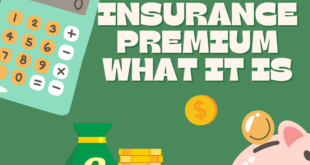
Personal finance is a term that includes money management as well as saving and investing. Covers budgeting, banking, insurance, mortgages, investing and retirement planning, taxes and real estate. The term often refers to the entire sector that provides financial services to individuals and households and advises them on financial and investment opportunities. Your personal goals and needs, and your plans to meet those needs within your financial constraints, will also influence how you approach the above. Financial literacy is essential to making the most of your income and savings. This will help you distinguish between good and bad advice and make smart financial decisions.
The main conclusion…
Few schools offer courses on how to manage money, so it’s important to learn about it through free online articles, courses, blogs, podcasts, or books.
The main areas of personal financial management include income, expenses, savings, investments and protection.
Smart personal finance budgeting, building an emergency fund, paying off debt, using credit cards wisely, saving for retirement and more. Development strategies include:
Being disciplined is important, but it’s also good to know when not to follow instructions.
The Importance of Personal Finance…
Personal finance is about achieving your personal financial goals. These goals can be anything from meeting short-term financial needs, planning for retirement, or saving for a child’s college education. It depends on your income, expenses, savings, investments and personal protection
(insurance and estate planning)..
Few schools offer courses on how to manage money, so it’s important to learn about it through free online articles, courses, blogs, podcasts, or books. The main areas of personal financial management include income, expenses, savings, investments and protection. Smart personal finance budgeting, building an emergency fund, paying off debt, using credit cards wisely, saving for retirement and more.
Being disciplined is important, but it’s also good to know when not to follow instructions. A lack of understanding of how to manage finances and maintain financial discipline has led Americans to accumulate massive amounts of debt. As of August 2022, household debt increased by $2 trillion compared to December 2019. In addition, the following balances increased between the first and second quarters of 2022:
Credit card balances: up $46 billion
Auto Loans: Up $33 Billion
Consumer loans and commercial cards: up $25 billion
Total nonresidential construction: up $103 billion
Mortgage: Up $207 billion Student loan debt was unchanged at $1.59 trillion.
Americans are taking on more debt to finance their purchases, and managing personal finances has become more important than ever, especially as inflation erodes purchasing power and prices rise.
The field of personal finance
The five areas of personal finance are income, savings, expenses, investments and protection.
income
Income is the starting point of personal finance. This is the total amount of cash available to spend, save, invest and protect. Income is any money that comes in. These include wages, salaries, dividends and other sources of cash income. costs
Expenses are cash outflows and usually most of your income goes to them. Expenses are what a person uses to buy income. These include rent, mortgage, groceries, hobbies, meals, home furnishings, home repairs, travel and entertainment. Managing expenses is a key aspect of personal finance. People should ensure that their expenses are less than their income. Otherwise, you won’t have enough money to cover your losses or you’ll end up in debt. Debt can take a toll on your finances, especially if your credit card interest rates are high.
Saving
Savings is the income left over after spending. Everyone should try to save for basic expenses or emergencies.
However, this can be difficult because it means you won’t be using all of your income. Regardless of the challenges, everyone should try to save at least some money to cover fluctuations in income and expenses (3 to 12 months’ worth of expenses). Additionally, unused cash in savings accounts loses purchasing power over time due to inflation, becoming a waste. Instead, cash that isn’t tied up in emergency or spending accounts should be invested in things that will help maintain or increase value, such as investments.
Invest
Investing involves purchasing assets (usually stocks or bonds) in the hope of earning a return on the money invested. Investment is intended to increase an individual’s wealth beyond the amount invested. Investment involves risk. Not all assets increase in value and may result in losses. Investing can be difficult for beginners. I recommend that you take the time to read, research and understand. If you are short on time, it may be a good idea to hire a professional to help you invest your money.
Protect,
Hedging refers to a technique that people use to protect themselves and preserve wealth from unexpected events such as illness or accidents. Protection includes life insurance, health insurance, property and retirement planning.
Personal financial services
Various financial planning services fall into one or more of five areas: You can find many companies that offer this
This service is intended to help customers plan and manage their finances. These services include:
asset management
loans and debts
budget
Guest house
role
Crisis management
estate planning
invest
categorical
credit card
housing and mortgages
Personal Finance Strategy
The earlier you start your financial planning, the better. But it’s never too late to set financial goals that will provide financial security and freedom for you and your family. Find personal finance best practices and tips below.
1. Know your income
If you don’t know how much you’ll take home after taxes and deductions, it’s no use. So before you decide anything, know exactly what your net salary will be.
2. Make a budget
A budget is essential to living within your means and saving enough to reach your long-term goals. The 50/30/20 budgeting method provides a great framework. It is divided as follows:
50% of your net pay or net profit (after taxes) goes toward basic needs like rent, utilities, food, and transportation. 30% of that goes to discretionary spending like eating out and buying clothes. Donations to charities can also appear here. 20% is heading towards the future. It’s about paying off debt and saving for retirement and emergencies.
3. Pay yourself first.
It’s important to pay yourself first so you can set aside money for unexpected expenses like medical bills, major car repairs, and living expenses if you’re laid off. The best safety net is 3 to 12 months worth of living expenses. Financial experts typically recommend saving 20% of your salary each month. Don’t stop after you fill your emergency fund. Continue to invest 20% each month for other financial goals, such as retirement or a down payment on a home.
4. Limit and reduce debt
It sounds very simple. To keep debt under control, don’t spend more than you earn. But, of course, most people need to borrow money from time to time, and sometimes borrowing money can be beneficial (for example, if it leads to the purchase of an asset). One such situation could be taking out a mortgage to buy a house. But whether you’re leasing a house, leasing a car, or even subscribing to computer software, leasing can be cheaper than buying outright. On the other hand, reducing your payments (eg interest) can free up your income to be invested elsewhere or saved for retirement when you’re younger. At this point, savings will benefit more from compound interest. Some private and federal loans may have lower interest rates if the borrower signs up for automatic payments. Student loans account for $1.59 trillion in consumer debt. If you still have student loans, you need to prioritize them. There are many loan repayment plans and payment reduction strategies. If you have to pay more interest, it makes sense to pay off the principal sooner. Some flexible federal payment programs to consider include:
Gradual Payment: Increase your monthly payment gradually over 10 years.
Repayment Extension: Extend your loan for up to 25 years. Income-Based Repayment: Limit payments to 10-15% of your income (depending on income and family size).
5. Borrow only what you can afford
Credit cards can be a major debt trap, but in today’s world, it’s impossible not to own a credit card. Besides, it has uses other than buying things. This is very important in determining your credit score and is a great way to track your spending, which can be a big help in budgeting. You need to manage your credit properly. This means paying off the balance in full each month or keeping your credit utilization ratio as low as possible (ie keeping your account balances below 30% of your total available credit).
6. Check your credit rating
Credit cards are the main means of building and maintaining your credit score, so controlling your credit spending goes hand in hand with controlling your credit score. If you’re looking to get a lease, mortgage, or other type of financing, you’ll need a solid credit report. There are several credit scores, but the most popular is the FICO score.
Set up automatic transfers to pay your bills whenever possible (so you don’t miss a payment) and sign up with a reporting agency to keep your credit score up to date. You can also check your credit report to detect and resolve any errors or fraud.
7. Plan for the future
To protect your estate and ensure that your wishes are carried out upon your death, you should write a will and set up one or more trusts, depending on your needs. You should also get insurance, including auto, home, life, disability and long-term care (LTC), and look for ways to lower your premiums whenever possible. Check regularly to make sure your insurance policy meets your family’s needs during these important stages of life. Other important documents include the living will and power of attorney for health care. While not all of these documents will affect you directly, they can save you a lot of time and money for family members if you become ill or incapacitated. Retirement may seem like a lifetime, but it comes much sooner than you expect. Experts estimate that most people will need about 80% of their current salary when they retire. The younger you start, the more you’ll benefit from what advisers call the magic of compound interest – the way small amounts grow over time. Putting aside money for retirement now not only provides long-term growth, but placing those funds in tax-advantaged plans like Individual Retirement Accounts (IRAs) and 401(k)s can also reduce your ,
the current income tax liability. or 403(b). Even when your children are young, take the time to teach them the value of money and how to save, invest and spend it wisely. If your employer offers a 401(k) or 403(b) plan, start contributing right away, especially if your employer matches your contributions. If you don’t, you’re giving up free money.
Learn the differences between a Roth 401(k) and a traditional 401(k) if your company offers both. Investing is only one part of retirement planning. Other strategies include waiting as long as possible before taking Social Security benefits (a smart move for many people) and converting term life insurance to permanent life insurance.
8. Get insurance
As you get older, it’s normal to accumulate as many things as your parents – family, house or apartment, possessions, health problems, etc. If you wait too long to get coverage, premiums can be expensive. Medical, long-term care and life insurance; The older you get, the more expensive everything gets. Plus, you never know what life will throw at you. Whether you’re the sole breadwinner or you and your partner work for a living, a lot depends on your ability to work. Insurance can cover most hospital bills as you age, leaving your hard-earned savings in the hands of your family. Medical expenses are one of the main causes of debt. If something happens to you, life insurance can absorb the loss and give those you leave behind a buffer for financial recovery.
9. Maximize Your Tax Cuts
Many people are left with hundreds, if not thousands, of dollars on the table each year due to an overly complex tax code. By maximizing your tax savings, you can reduce past debt, free up money to invest in enjoying the present and planning for the future. You should keep your receipts and track your expenses for all possible deductions and tax credits. Many office supply stores sell convenient «tax organizers» with the basic categories already marked. Once you’re organized, you’ll want to focus on taking advantage of all the credits and tax credits available to you and selecting one if necessary. Basically, a tax credit reduces your taxable income, while a tax credit reduces the amount of tax you have to pay. This means that a $1,000 tax deduction can save you much more than a $1,000 deduction.
10. Take a deep breath
Budgeting and planning can seem difficult. Always reward yourself. Whether it’s a vacation, shopping, or the occasional trip to town, you deserve to enjoy the fruits of your labor. This will give you a taste of the financial independence you’ve worked so hard for.
Finally, remember to delegate when necessary.
You may be competent enough to do your own taxes or manage your stock portfolio, but that doesn’t mean you should.
Opening an account with a brokerage firm and spending a few hundred dollars at least once on a certified public accountant (CPA) or financial planner can be a good way to start planning.
With the rewards and special incentives (eg cashback) offered these days, it makes sense to cash in on as many of your purchases as possible if you can afford to pay the bill in full. You should never go over your credit card limit and always pay your bills on time. One of the fastest ways to destroy your credit score is to fall behind on your payments, or worse, miss a payment. Using a debit card to withdraw money directly from your bank account is another way to avoid paying interest on small purchases that add up over time.
Personal Finance Technology
The key to keeping your finances on track is to use the skills you already have. It’s also about understanding that the principles that lead to business and career success also apply when managing your personal money.
The three key skills are setting financial priorities, estimating costs and benefits, and containing costs.
Prioritizing your finances means being able to analyze your finances, figure out where your money is flowing, and focus those efforts.
Estimating costs and benefits – This important skill prevents experts from spreading themselves too thin. Ambitious people always have a list of ideas for different ways to make it big, whether it’s a side hustle or an investment idea. There is a time and a place for management, but managing your finances as a business means taking a step back and realistically assessing the potential costs and benefits of your new venture. Limiting your expenses is the last general skill you need to apply to your personal finances in order to successfully manage your business. Financial planners often hang out with successful people who can spend more than they earn. If you spend $275,000 a year, making $250,000 a year is probably not a great thing. Learning how to limit your spending on other assets until you meet your monthly savings or debt reduction goals is important to building your net worth. Personal Financial Education… Personal money management is not one of the most popular subjects in the education system. Most college courses require some financial education, but they are not tailored to each individual.
That means most people, if they’re lucky, either get a personal financial education from their parents or have to learn it themselves.
Fortunately, you don’t have to spend a lot of money to learn how to take care of it. You can find what you need for free online and in library books. Almost all media outlets offer personal financial advice.
What you can learn in personal finance courses
Personal finance education is a great idea for consumers, especially those who are just starting out in finance and want to learn the basics of investing or credit management. But understanding the basics doesn’t guarantee you a path to financial insight. Human nature can often derail the best intentions to get a perfect credit score or build sizable retirement savings.
These three important personality traits will help you stay on track.
Discipline
One of the important principles of personal finance is systematic saving. For example, let’s say your net income is $60,000 per year and your monthly living expenses (housing, food, transportation, etc.) are $3,200 per month. You can choose options for the remaining $1,800 of your salary. Ideally, the first step is to create an emergency fund or a tax-advantaged health savings account (HSA). To qualify for a health savings account, your health insurance must be in a high-deductible health plan (HDHP). Building an emergency fund requires financial discipline. Without it, giving in to the temptation to spend money instead of saving it can have serious consequences. In an emergency, you may not have the money to pay your bills and may need to raise debt. Once you have an emergency fund, you need to develop investment discipline. This doesn’t just apply to institutional money managers who make money by buying and selling stocks. The average individual investor performs better when they set and stick to their investment goals rather than buying and selling stocks to try to time the market.
Sense of Time……..
Time can be of the essence. For example, imagine you’ve completed three years of college and want to reward yourself by building an emergency fund. The jet ski costs 3,000 euros, but you might want to invest in one. «Investment in growth stocks may have to wait another year,» he said. «I have plenty of time to prepare and manage my investment portfolio.» But delaying investment by a year can have big consequences. The cost of purchasing skis can be expressed in terms of the time value of money. If you spent $3,000 on a jet ski, you would have earned $49,000 over 40 years at 7% interest. This is the average annual return of a long-term growth mutual fund. So if you put off making smart investment decisions, you may not reach your goal of retiring at age 65. Just doing what you can today is enough to pay off your debt tomorrow. If you put your jet ski on your credit card, it will take you 222 months (18.5 years) to pay off your $3,000 credit card balance by paying at least $75 each month. Don’t forget the interest you will pay. At an annual percentage rate (APR) of 18%, that’s $3,923 per month. So if you use $3,000 to pay off your balance instead of increasing it, you’ll save a significant amount of about $1,000.
Frequently Asked Questions
What is Personal Finance?… Personal finance is the knowledge, tools and skills used to manage your finances. Understanding the principles and concepts of personal finance can help you manage debt, savings, living expenses, and retirement savings.
What are the five most important components of personal finance?
The five most important components are income, expenses, savings, investments, and protection.
What is an example of personal finance?
One of the main ideas of personal finance is not to spend more than you can afford. For example, if you earn $50,000 a year and spend $65,000, you will end up accumulating debt because you will be spending more than you earn to pay for past expenses.
 Creative agency information Information about media, marketing y creative
Creative agency information Information about media, marketing y creative



